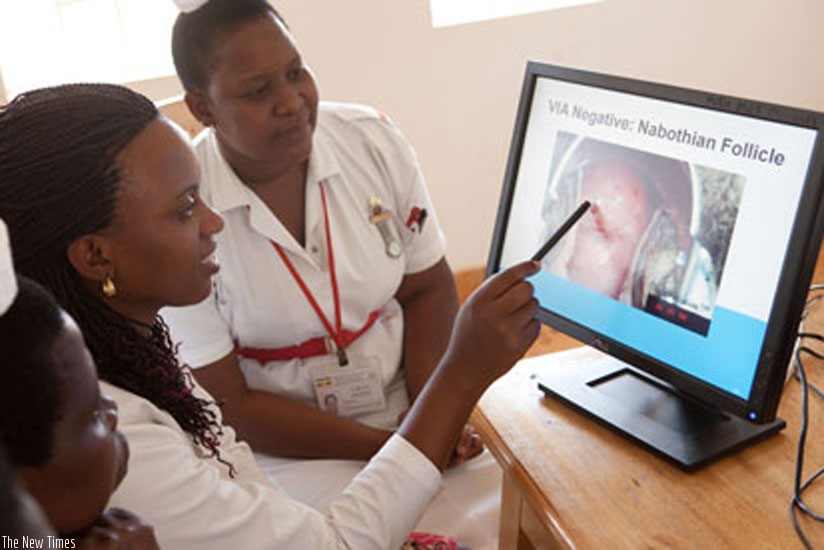A few days ago, Rosemary Nankabirwa, a former news anchor with a Ugandan television station, passed on after a long battle with adrenocortical carcinoma cancer. The death of the 37-year-old hurt many because she was young, but also demystified the myth that cancer is a disease for the old people.


A few days ago, Rosemary Nankabirwa, a former news anchor with a Ugandan television station, passed on after a long battle with adrenocortical carcinoma cancer. The death of the 37-year-old hurt many because she was young, but also demystified the myth that cancer is a disease for the old people.
What is cancer?
Cancer is a class of diseases characterized by out-of-control cell growth. There are over 100 different types of cancer, and each is classified by the type of cell that is initially affected.
Cancer harms the body when damaged cells divide uncontrollably to form lumps or masses of tissue called tumors (except in the case of leukemia where cancer prohibits normal blood function by abnormal cell division in the blood stream). Tumors can grow and interfere with the digestive, nervous, and circulatory systems, and they can release hormones that alter the body’s functioning. Tumors that stay in one spot and demonstrate limited growth are generally considered to be benign.
According to medics, adolescents and young adults aged 15 to 39 too, are much more likely to be diagnosed with cancer like lymphoma, leukemia, germ cell tumors (including testicular cancer), melanoma, central nervous system tumors, sarcomas, breast, cervical, liver, thyroid, and colorectal cancers.
Causes
Dr Marie Aimee Muhimpundu, the non communicable diseases (NCD’s) division manager at Rwanda Biomedical Centre, says that aging being a risk factor for cancer does not mean that young people are not at risk of suffering from cancer.
According to Austin Kafureeka , an oncologist with MedPlus Clinic, there are various risk factors for cancer regardless of one’s age. They include exposure to polluted environments like industrial areas, radiation during medical tests or procedures.
He also mentions that cigarette smoking is the biggest cause of lung cancer in humans regardless of age.
"Tobacco smoke is a toxic mix of more than 7,000 chemicals, so any one who consumes it, takes in as much poisons,” he said.
Kafureeka says that people who smoke are 15 to 30 times more likely to get lung cancer or die from lung cancer than people who do not smoke. And that cigarette smoking can cause cancer almost anywhere in the body such as the lungs, mouth, nose, throat, voicebox (larynx), esophagus, liver, bladder, kidney, pancreas, colon, rectum, cervix, stomach, blood, and bone marrow (acute myeloid leukemia).
Kafureeka notes that heavy or regular alcohol consumption also increases the risk of developing cancers of the oral cavity, pharynx (throat), larynx (voice box), esophagus, liver, breast, colon, and rectum.
"The risk of developing cancer increases with the amount of alcohol a person drinks,” he notes
Several studies have also linked obesity to cancer. According to research, people who are obese have more fat tissue that can produce hormones, such as insulin or estrogen, which may cause cancer cells to grow, and obesity has been linked to cancers like breast (in women who have been through menopause),uterine, kidney, pancreatic, thyroid, and gallbladder.
The International Agency for Research on Cancer (IARC) says that air pollution from traffic and industrial fumes is a definite cause of lung cancer and is also linked to cancer of the bladder, and this can happen in a short period, which implies that the youth can also be affected.
Jane Uwimanzi, a physician with Abbey Family Clinic Remera, says the rise in the number of cancer cases is because most people lack enough information about cancer.
"Cancer literacy is very low and it does not matter whether the patient is educated or not. They turn up late for screening,” he says.
She says that majority of people who turn up are normally diagnosed with stage four cancer, considered very late as far as treatment is concerned.
Muhimpundu remarks that increased sensitisation by the ministry over the years has seen more people go for cancer screening, which perhaps has led to increase in registration of such diseases.
Prevention
Uwimanzi says that cancer screening is necessary even without symptoms, so pre-cancer changes are noticed before it becomes fully blown cancer.
"The risk of cervical cancer rises in a woman’s 20s and 30s, so most experts recommend that women start being screened for cervical cancer at the age of 21,” she says.
Uwimanzi mentions that colorectal cancer is much more common in older adults, so screening is not recommended for people at average risk until the age of 50. But in people who are known to be at high risk, such as those with certain inherited conditions or a strong family history, screening might be recommended earlier – sometimes as early as the teen years.
Kafureeka says that some vaccines might lower a person’s risk of getting cancer. For instance, vaccines are available to help prevent infection with HPV (human papilloma virus), the group of viruses linked to cervical and some other cancers. These vaccines work best if they are given before a person becomes sexually active.
"Rarely, people inherit gene changes that make them very likely to get a certain kind of cancer at an early age. In such cases, some people and their doctors might decide on surgery to remove an organ before cancer has a chance to develop there. Again, this is not common,” he concludes.


